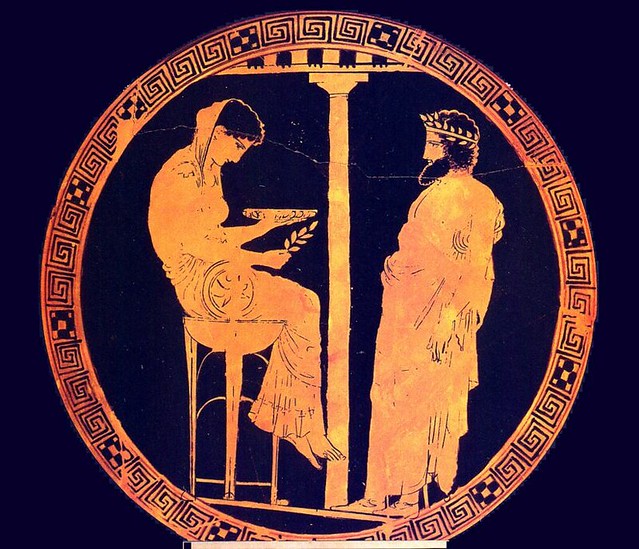
"The deepest core of life is poetry and symbol." - Dane Rudhyar
Like Symbol Reader on Facebook
-
-
Recent Posts
Categories
Archives
Meta










Tag Archives: Carl Gustav Jung
Reading The Red Book (32)
Chapter XIX of Liber Secundus (part II of The Red Book) is called The Gift of Magic. The Soul wants Jung to accept the gift of magic represented by “a black rod, formed like a serpent-with two pearls as eyes-a … Continue reading
Posted in The Red Book by C.G. Jung
Tagged archetypes, C.G. Jung, Carl Gustav Jung, depth psychology, feeling, four functions, intuition, Kabbalah, Kether, Liber Novus, magic, magician, psyche, ring, sacrifice, sensing, serpent, solitary, Soul, symbolism, symbols, The Red Book, thinking, unconscious
5 Comments
Gilgamesh: He Who Saw the Deep
If you happen to have some time on your hands, I strongly recommend that you take a look at Ancient Masterpiece of World Literature (https://www.edx.org/course/ancient-masterpieces-of-world-literature), a course which Harvard University is currently offering online free of charge. You can also … Continue reading
Posted in Gilgamesh, Uncategorized
Tagged archetypes, Carl Gustav Jung, cedar, culture, death, deluge, depth psychology, Divine, Enkidu, epic, flood, Gilgamesh, goddess, human, humbaba, immortality, Inanna, Ishtar, Mesopotamia, myth, mythology, nature, Rilke, Sumer, Sumerian, symbolism, symbols, Underworld, Uruk, Utnapishtim
12 Comments
Reading The Red Book (8)
“But how does the mind free itself of its accumulated violence, cultured violence, self-protective violence, the violence of aggression, the violence of competition, the violence of trying to be somebody, the violence of trying to discipline oneself according to a … Continue reading
Reading The Red Book (4)
“Look into your depths, pray to your depths, waken the dead.” C.G. Jung, “The Red Book” The chapter entitled On the Service of the Soul contains a dire warning: soul work is not a light endeavor. Jung describes his fear … Continue reading
Posted in The Red Book by C.G. Jung
Tagged C.G. Jung, Carl Gustav Jung, depth psychology, psychology, Soul, tao te ching, te, The Red Book, the unconscious, virtue
11 Comments
Reading The Red Book (2)
Chapter 1 of The Red Book bears the title Refinding the Soul. “I have shaken the dust of all the lands from my feet, and I have come to you, I am with you,” says Jung, addressing his soul. He … Continue reading
Dark Matter
“You’re sitting here with us, but you’re also out walking in a field at dawn. You are yourself the animal we hunt when you come with us on the hunt. You’re in your body like a plant is solid in … Continue reading
Chaos, Harmony and the Birth of Alphabet
One of the most beautiful Greek myths, which fascinated Carl Gustav Jung because of its alchemical underpinnings, is the story of Cadmus and Harmony. It is beautifully retold in The Marriage of Cadmus and Harmony by Roberto Calasso, who begins … Continue reading
Posted in Cadmus, Uncategorized
Tagged alchemy, alphabet, Cadmus, Carl Gustav Jung, Dionysos, Greek myth, Greek mythology, harmony, Mercurius, Phoenicians, Roberto Calasso, snake, Thebes, trickster, Typhon
11 Comments
Struggle for Love in a Dream
Hypnerotomachia Poliphili (Poliphilo’s Strife of Love in a Dream or Poliphilo’s Struggle for Love in a Dream), more than just a book but rather a milestone in depth psychology, was published in Venice in 1499. It featured beautiful woodcut illustrations and … Continue reading

